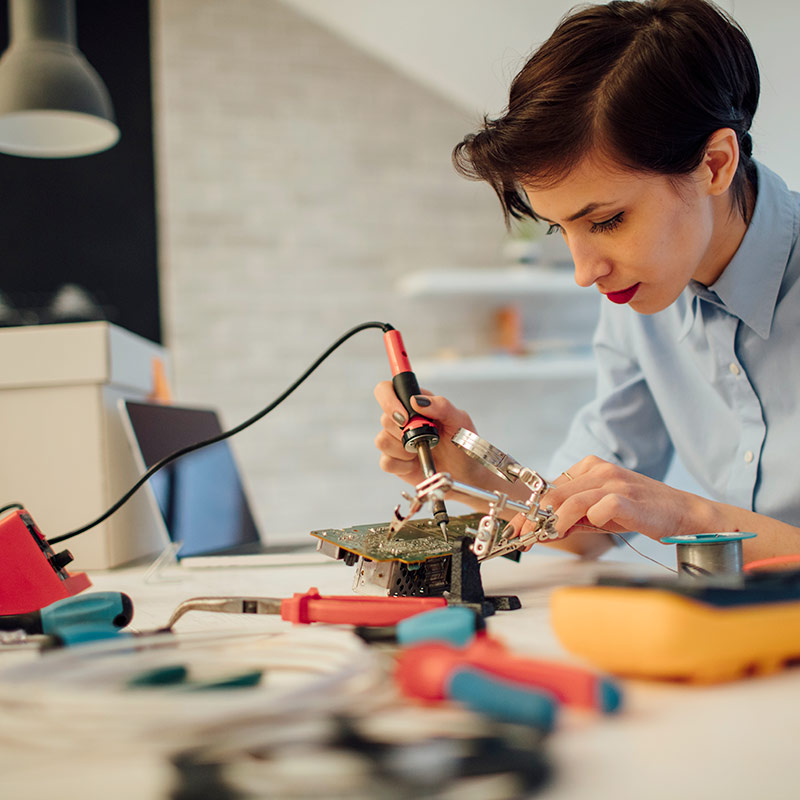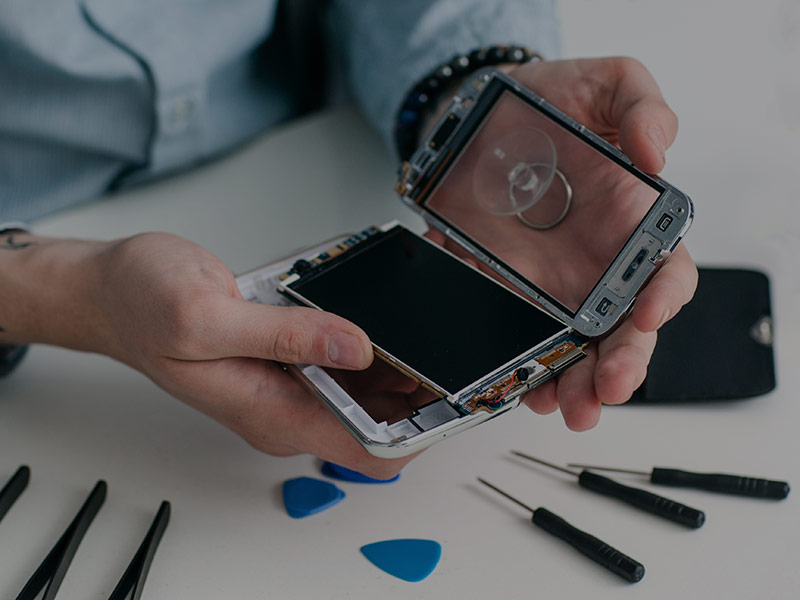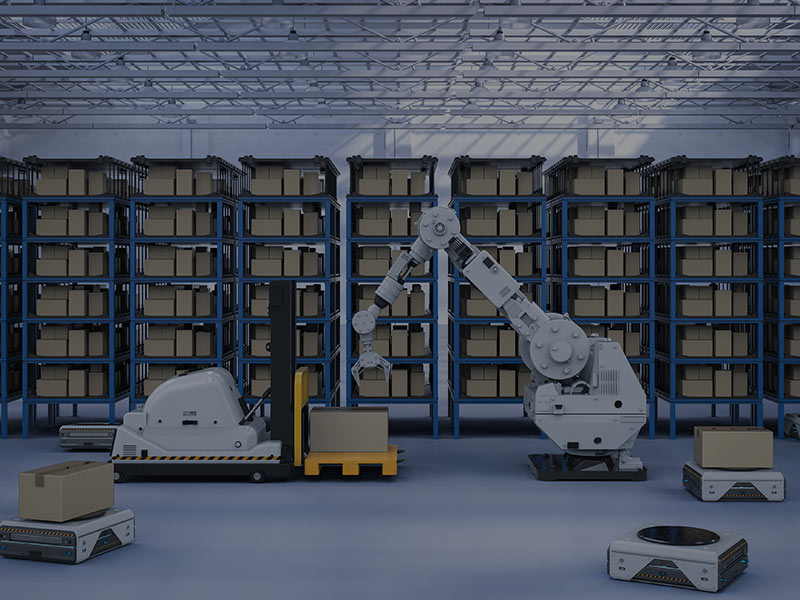
As electronics are increasingly embedded into everyday objects, the right of consumers to repair the products they own is becoming more pressing. Products that cannot be repaired—especially “smart” products—are contributing to resource scarcity and climate change. New legislation is putting pressure on manufacturers to respect consumer’s right to repair their electronics.
What’s New
We’ve embedded electronics into everything, from our cars to our clothes, and all the while our ability to repair these items has steadily declined.
Planned obsolescence, combined with software locks and restricted access to manuals and parts, has made it more difficult and expensive to repair products—often forcing consumers to use specialist repair services that increase the cost, time, and unlikelihood of repair. Sometimes, repair is simply impossible.
The repair movement has gained momentum in recent years with support from repair trade associations, companies offering new modular designs, and emerging community networks for repairers, such as iFixit and physical repair cafes across the world. Together, these groups help to advance consumer’s ability to repair the items they own.
There is now an emerging body of legislation forcing companies to make their goods more repairable from the EU to the U.S.
In addition to the design of products, consumers and small-scale repair stores also need access to the knowledge, product schematics, and tools to safely repair products. As new repairability legislation emerges in some locations, the information made available to consumers under this legislation is accessible globally and so improves repairability for consumers beyond the jurisdiction of the legislation.
The issue of repairability is not limited to just household consumer electronics: it is crucial to industries such as agriculture and construction where inability to repair equipment is leading to increased expenses and downtime.
Improved repairability can decrease the carbon footprint, resource use, and e-waste from the electronics and machinery industries. While some companies in these industries are focused on improving their environmental performance, repairability is an often overlooked aspect of these strategies that needs to go hand-in-hand with recyclability.
Accused of wanting to increase revenue through the sale of new products and expensive repair services, electronics and equipment companies have defended their practices, citing IP protection, consumer data protection and privacy, and consumer safety as reasons why repairs should be managed and controlled by the original producers.
Signals of Change
In response to growing pressure for right to repair legislation, in 2018, the Equipment Dealers Association and Association of Equipment Manufacturers agreed to make repair manuals, product guides, diagnostic service tools, and onboard diagnostics available to farmers by 2021. The voluntary agreement was created to hold off right to repair legislation but has not been met, sparking outcry from farmers once again in 2021. These associations represent companies such as John Deere, Case IH, New Holland, and Caterpillar.
In a world-first move last month, France began requiring makers of certain electronic devices, including smartphones and laptops, to provide consumers with information on the repairability of their products. Manufacturers selling these devices in France must give their products a score, or “repairability index,” based on a range of criteria, including how easy it is to take the product apart and the availability of spare parts and technical documents.
A total of 25 states in the U.S. are now considering right to repair laws.
Right to repair laws in the EU will come into effect in early 2021. Under the new legislation, certain consumer electronics need to be repairable for up to 10 years. The legislation, which aims to cut e-waste and encourage durable and repairable design, also aims to make electronics more energy efficient. Legislators acknowledged the need to provide support for small-scale repair shops under the new legislation. The UK will also implement the laws mid-2021 as part of its commitment to net zero emissions by 2050.
Fast Forward to 2025
Repairability had also become a competitive advantage, especially for B2B sales. Think about it, if you’re buying 10,000 laptops for your organization, you want the one you can have your local IT guy fix, where the total cost of ownership is lower...
The Fast
Forward
BSR Sustainable Futures Lab
Implications for Sustainable Business
Growing legislation on the right to repair will require companies producing goods with electronic components to manage the regulatory risk and embrace new business models. Companies may face increased pressure not only to increase the repairability of products going forward but also to better support the repair ecosystem and address repairability retrospectively in products already on the market.
The repair economy offers an increasing market opportunity for product manufacturers and other actors. Many repair stores are small-scale and local, and producers will need to engage their local repair economy and spare parts economy as part of their broader product ecosystem. These activities could also increase local jobs and boost local economies.
However, the electronics industry needs to ensure that these roles are good quality jobs with appropriate working conditions. The same is true for recycling jobs, where job quality has been historically poor and there have been challenges, such as forced and/or child labor, in the past.
The economy is so focused on the treadmill of the new. Repairability should at least be an option. At the very least, the circular economy in electronics should not be illegal. The next question is: Will people actually engage in repairs at scale? Putting repair index scores next to retail price of a product is very compelling, but there is still a lot of consumer education needed.
Beyond regulatory compliance, designing products for easy repair and recyclability offers an opportunity to decrease dependence on virgin minerals. The mining of these minerals is often associated with serious social and environmental challenges, including human rights violations.
As demand for these minerals increases, improving resource efficiency in finished products—including increasing the lifespan of finished products or using recycled inputs—becomes more crucial. Furthermore, growing geopolitical tensions and trade wars are threatening the security of supply for major rare earth minerals that are integral to electronics and other industries such as renewable energy.
Repairability legislation is not retroactive and mostly only applies to products being produced in the future. The challenge of repairability and recyclability of the electronics and machines produced before the legislation is still an environmental concern.
As new repairability and waste legislation emerges, product designers will need to focus on enhancing the recyclability and repairability of products. Furthermore, for recyclability, improved industry coordination on plastic and metal inputs is needed across products and companies.
![]()
Previous issue:
AI in Hiring
![]()
Next issue:
The Cooling Conundrum
































